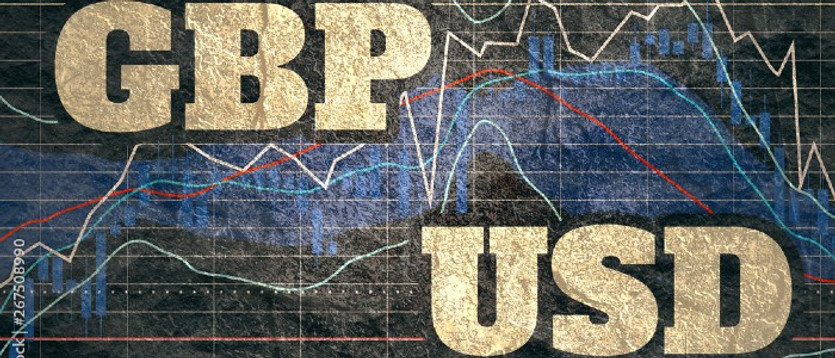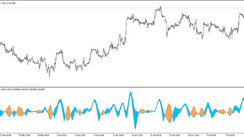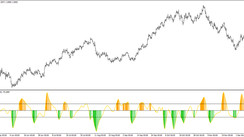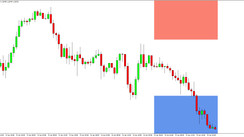The British pound fell sharply after the publication of Purchasing Managers' Index (PMI). As reported (at 08:30 GMT) at the Royal Institute of Purchasing and Supply, manufacturing PMI (from Markit Economics) fell to 54.6 in May from 55.8 in April. The PMI index for the services sector fell to 51.8 in May from 58.9 in April. The forecasts were 55.1 and 57.0, respectively.
Values above 50 indicate an increase in activity. However, the relative decline in performance turned out to be a negative factor for the pound. The published data "suggest that the economy is slowing down as inflationary pressures have risen to unprecedented levels," S&P economists said.
Such a significant relative decline in business activity again made market participants doubt the prospects for an interest rate hike by the Bank of England.
It is pursuing a policy of tightening monetary policy to fight inflation at a time when the UK economy could enter a recession this year, although the government will try to avoid it by all means, economists say.
The pound is also under pressure due to the difficult situation with Brexit (in terms of the protocol on Northern Ireland) that has again reminded of itself. According to media reports, the UK is planning to pass legislation over the next three weeks that will repeal some of the provisions of the Brexit agreement. The EU may respond by threatening to cancel the trade agreement altogether or suspend the agreement.
The pound fell sharply today both in cross-pairs and against the dollar.
At the time of publication of this article, the GBP/USD pair was traded near the 1.2507 mark, being in the zone between the important short-term levels 1.2615 and 1.2450. But in general, the downward trend remains.
Meanwhile, the dollar also continues to decline in its DXY index. At the time of publication of this article, futures for the DXY dollar index are near 101.96, 310 points below the local maximum (since January 2003) of 105.06, reached in the first ten days of May.
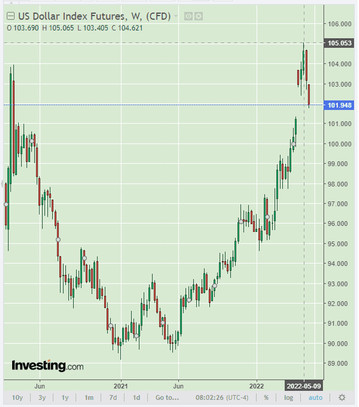
And today, market participants will be waiting for the publication (at 13:45 GMT) of the PMI indexes of business activity from the Markit agency and the speech (at 16:20 GMT) of Fed Chairman Jerome Powell as part of events related to the International Economic Forum held in Davos. Earlier this month, he already confirmed the Fed's intention to raise rates by 0.50% at the next two meetings. However, the dollar is declining after Powell's statements. Perhaps market participants expected more aggressive statements from him, while, according to Powell himself, these upcoming interest rate hikes are, for the most part, already priced in. Obviously, the dollar needs new growth drivers. It may get them today if Powell makes surprise announcements, raising market expectations for more aggressive Fed rate hikes.

